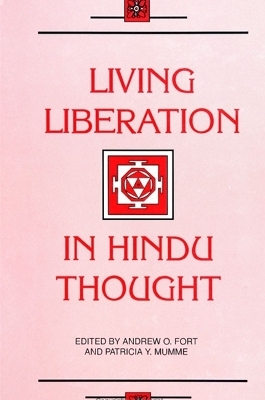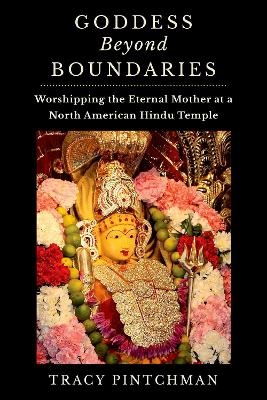
Living Liberation in Hindu Thought
State University of New York Press (Verlag)
978-0-7914-2706-4 (ISBN)
- Titel nicht im Sortiment
- Artikel merken
Andrew O. Fort is Associate Professor in the Department of Religion at Texas Christian University. Patricia Y. Mumme is Assistant Professor of Religion at Capital University.
Figures
Preface
Introduction: Living Liberation in Hindu Thought
Andrew O. Fort
Chapter Summaries
Notes
Part I: Living Liberations in Vedanta Traditions
1. Living Liberation in Sankara and Classical Advaita: Sharing the Holy Waiting of God
Lance E. Nelson
Introduction
Liberation in Sankara's Thought
Living Liberation
Jivanmukti: Difficult to Justify but Necessary for Salvation
Sankara's Justifications of Living Liberation
Is Jivanmukti Complete Liberation?
Justifications of Jivanmukti in Post-Sankara Advaita
Reservations about Jivanmukti in Post-Sankara Advaita
Isvara as a Paradigm for Living Liberation
Even Isvara Suffers Limitation
Conclusion
Abbreviations
Notes
2. Is the Jivanmukti State Possible? Ramanuja's Perspective
Kim Skoog
Introduction: Ramanuja's Three Arguments
Ramanuja's First Argument
Ramanuja's Second Argument
Ramanuja's Third Argument
Analysis of the First Argument: Jivanmukti as Self-Contradiction
Analysis of the Second Argument: The Jivanmukti-Videhamukti Dispute Is Verbal in Nature
Analysis of the Third Argument: False Analogy in the Two-Moons Analogy
Basis for the Jivanmukti and Videhamukti-Only Positions
Scriptural Basis for Jivanmukti
Empirical Evidence for Jivanmukti
Doctrinal Considerations Regarding the Jivanmukti and Jivanmukti-Positions
View of the Self
Metaphysics
Performance of Actions
Fructifying Karma
Theological Considerations
Conclusion
Abbreviations
Notes
3. Direct Knowledge of God and Living Liberation in the Religious Thought of Madhva
Daniel P. Sheridan
Introduction
Madhva in the Context of Thirteenth- and Fourteenth-Century Advaita
Bondage and Liberation in Madva's Teaching
The Practical Means to Liberation According to Madhva
The Direct Knowledge of God While Living
Conclusion
Abbreviations
Notes
Part II: Yoga and Renunciation in Living Liberation 4. Living Liberation in Samkhya and Yoga
Christopher Key Chapple
Introduction
Samkhya
Knowledge and Non-Attachment in Samkhya
Later Vedantic Interpretations of Samkhya
Yoga
Distinctions between Samkhya and Yoga
Yogic Liberation as the End of Afflicted Action
A Comparative Analysis of Living Liberation in Samkhya and Yoga
Possible Jaina Elements in the Yoga System
Conclusion
Abbreviations
Notes
5. Liberation While Living in the Jivanmuktiviveka: Vidyaranya's "Yogic Advaita"
Andrew O. Fort
Introduction
The Nature of Jivanmukti
The Jivanmukti as One with Firm Wisdom (Sthita-Prajna)
The Threefold Means to Obtain Jivanmukti
Jivanmukti and Videhamukti in the Jivanmuktiviveka
The Purposes of Attaining Liberation While Living
Renunciation and Jivanmukti
Conclusion
Abbreviations
Notes
6. Modes of Perfected Living in the Mahabharata and the Puranas: The Different Faces of Suka the Renouncer
C. Mackenzie Brown
Introduction
The "Empty Form" of Suka in the Mahabharata: The Revelation of Inscrutable Indifference
Suka and His Models in the Bhagavata Purana: Enlightened Idiots of Dazzle and Dirt
Suka in the Devi-Bhagavata Purana: The Reluctant Householder
Conclusion
Abbreviations
Notes
Part III: Living Liberation in Saiva Traditions 7. Aspects of Jivanmukti in the Tantric Saivism of Kashmir
Paul E. Muller-Ortega
Introduction: Placing the Tradition
The Problem of Jivanmukti
Jivanmukti in Early Texts
Kashmiri Constructions of Bondage and Liberation
The Seven Experiencers
Embodied Enlightenment
Conclusion
Abbreviations
Notes
8. Living Liberation in Saiva Siddhanta
Chacko Valiaveetil, S.J.
Introduction
Saiva Siddhanta Literature
The Advaita of Saiva Siddhanta and the Jivanmukti Ideal
Toward Jivanmukti
The Odyssey of the Soul
Continuity of Bondage (Samsara) and Liberation (Moksa)
God's Quest for the Soul
The Spiritual Sadhana
The Descent of Divine Grace (Saktinipata)
Growth in the State of Jivanmukti
Freedom from the Bonds (Pasavitu)
Removal of the Root Impurity (Anavamala)
Removal of Karma and Maya
Attaining the Feet of the Lord
Union in Knowledge
Union in Love
Means to Persevere and Grow in God-Experience
The Conduct of the Jivanmukta
Detachment from Creatures
Life of Service of the Jivanmukta
Is the Jivanmukta Beyond Ethical Norms?
Love as the Ultimate Criterion
Injunctions for the Jivanmukta
Respect for the Sacred Emblems
Worship of God in the Temple
Conclusion
Abbreviations
Notes
Conclusion: Living Liberation in Comparative Perspective
Patricia Y. Mumme
Jivanmukti: The Concept and the Term
Strong, Medium, and Weak Positions on Living Liberation
Jivanmukti and Scholastic Metaphysics
The Lord and Liberation
Karma and Conscious Experience in the Penultimate State
The Need for Enlightened Teachers
The Behavior of the Jivanmukta: Dharma, Karma, and Freedom
Conclusion: Prospects for Future Study
Notes
Contributors
Index
| Erscheint lt. Verlag | 14.3.1996 |
|---|---|
| Zusatzinfo | Total Illustrations: 0 |
| Verlagsort | Albany, NY |
| Sprache | englisch |
| Maße | 152 x 229 mm |
| Gewicht | 408 g |
| Themenwelt | Geisteswissenschaften ► Religion / Theologie ► Hinduismus |
| ISBN-10 | 0-7914-2706-4 / 0791427064 |
| ISBN-13 | 978-0-7914-2706-4 / 9780791427064 |
| Zustand | Neuware |
| Informationen gemäß Produktsicherheitsverordnung (GPSR) | |
| Haben Sie eine Frage zum Produkt? |
aus dem Bereich


